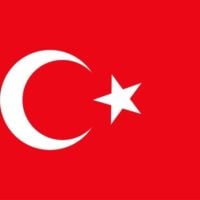Deadline: 11 October 2017
Saving Brains is seeking bold ideas for products, services and implementation models that protect and nurture early brain development in a sustainable manner, with the ultimate goal of increasing human capital and tackling existing inequalities.
Funding is open to innovative solutions that address the risk factors facing children living in adversity by promoting health and nutrition, providing enrichment and nurturing, and protecting against maltreatment.
Grand Challenges Canada leads the Saving Brains partnership, which has committed over $38 million CAD to Saving Brains projects. Grand Challenges Canada is dedicated to supporting Bold Ideas with Big Impact®. Funded by the Government of Canada and other partners, Grand Challenges Canada funds innovators in low- and middle-income countries and Canada. The bold ideas Grand Challenges Canada supports integrate science and technology, social and business innovation – known as Integrated Innovation®.
Areas of Interest
- Areas of particular interest include innovations designed for use in humanitarian contexts and fragile settings, innovations that provide support to adolescent parents, and innovations with demonstrated scale and strong paths to sustainability that have not yet measured impact on child development.
- Projects in Brazil must focus on innovations in the following areas of interest:
- Implementation of practices and public policies for early child development
- Delivery of quality early childhood education services
- Supportive services for families on nurturing parenting practices
- Innovations that help communicate and increase awareness of the importance of early child development for society.
Funding Information
Successful proposals will be awarded seed grants of up to $250,000 CAD over a maximum of 24 months.
Eligibility Criteria
- Eligible applicants include social enterprises and other recognized institutions (e.g., non-profit organizations and for-profit companies) that are formed and legally incorporated in an eligible jurisdiction, that can successfully execute the activities in their respective technical area, and are capable of receiving and administering grant funding. Sole proprietorships are not eligible for funding. United Nations country offices and Canadian provincial and federal government departments, agencies and ministries are not eligible to apply.
- A project can have a maximum of two Project Leads, both of which must have primary affiliations to institutions in eligible countries. At least one Project Lead must be affiliated with the institution from which the proposal is being submitted.
- Applicant institutions from Canada must apply with a co-Project Lead primarily affiliated with an institution in an eligible country, other than Canada.
- Applicants from Brazil:
- May not be government entities. The grant strongly encourages government entities to apply in partnership with other Brazilian institutions, but they are not eligible as direct grant recipients. Universities or research centres, civil society representatives, non-for-profits and private institutions are eligible to apply.
- Applicants primarily affiliated with institutions legally incorporated in countries mention below and in Canada are eligible to apply.
- Applicants from Upper-Middle-Income Countries (UMICs): Please note that a maximum of one (1) award will be made within each UMIC, exceptions may be made in cases in which domestic funding from a given UMIC and/or funding from one or more Saving Brains partners is committed.
How to Apply
Applications must be submitted online via given website.
Eligible Countries
- Least-Developed Countries: Afghanistan, Angola, Bangladesh, Benin, Bhutan, Burkina Faso, Burundi, Cambodia, Central African Republic, Chad, Comoros, Congo, Dem. Rep., Djibouti, Equatorial Guinea, Eritrea, Ethiopia, Gambia, Guinea, Guinea-Bissau, Haiti, Kiribati, Laos, Lesotho, Liberia, Madagascar, Malawi, Mali, Mauritania, Mozambique, Myanmar, Nepal, Niger, Rwanda, Samoa, Sao Tome and Principe, Senegal, Sierra Leone, Solomon Islands, Somalia, Sudan, Tanzania, Timor-Leste, Togo, Tuvalu, Uganda, Vanuatu, Yemen, Zambia
- Other Low-Income Countries: Kenya, Korea Dem. Rep., Kyrgyz Rep., South Sudan, Tajikistan, Zimbabwe
- Lower-Middle Income Countries and Territories: Armenia, Belize, Bolivia, Cameroon, Cape Verde, Congo Rep., Côte d’Ivoire, Egypt, El Salvador, Fiji, Georgia, Ghana, Guatemala, Guyana, Honduras, India, Indonesia, Iraq, Kosovo, Marshall Islands, Micronesia, Federated States Moldova, Mongolia, Morocco, Nicaragua, Nigeria, Pakistan, Papua New Guinea, Paraguay, Philippines, Sri Lanka, Swaziland, Syria, Tokelau, Tonga, Turkmenistan, Ukraine, Uzbekistan, Vietnam, West Bank and Gaza Strip
- Upper-Middle-Income Countries and Territories: Albania, Algeria, Anguilla, Antigua and Barbuda, Argentina, Azerbaijan, Belarus, Bosnia and Herzegovina, Botswana, Brazil, Chile, China, Colombia, Cook Islands, Costa Rica, Cuba, Dominica, Dominican Republic, Ecuador, Former Yugoslav Republic of Macedonia, Gabon, Grenada, Iran, Jamaica, Jordan, Kazakhstan, Lebanon, Libya, Malaysia, Maldives, Mauritius, Mexico, Montenegro, Montserrat, Namibia, Nauru, Niue, Palau, Panama, Peru, Serbia, Seychelles, South Africa, St. Helena, St. Kitts-Nevis, St. Lucia, St. Vincent and Grenadines, Suriname, Thailand, Tunisia, Turkey, Uruguay, Venezuela, Wallis and Futuna
For more information, please visit Saving Brains.









































